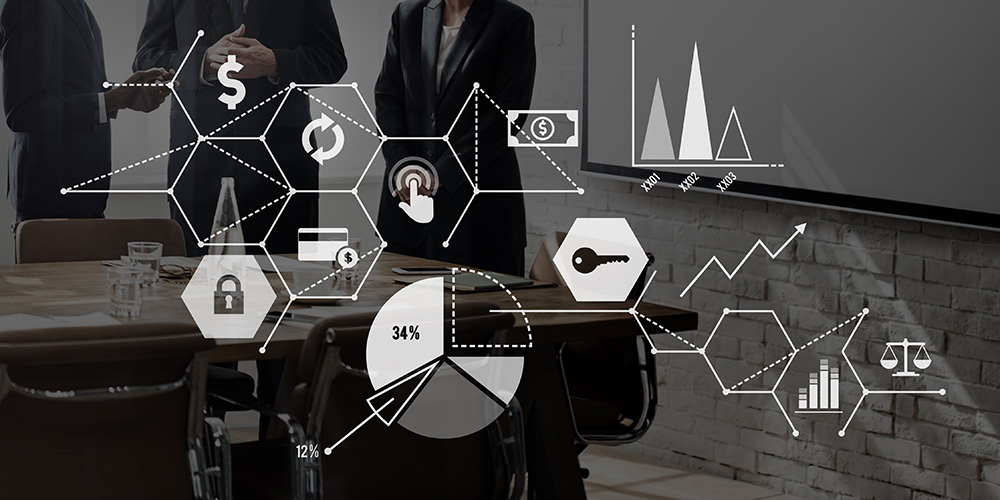What Is a POS System?
A point of sale or POS system is a device or system that provides easy business transactions between a vendor and a buyer. This system is a computer-aided network, which consists of a primary computer connected to different checkout terminals. Additionally, it is supported by various hardware features that include barcode scanners and payment terminals.
Since businesses have various profiles, they require different POS systems. For instance, restaurants, grocery stores, and retail businesses have their unique needs, so they need to use a point of sale system to meet their individual needs.
However, there are two major kinds of businesses that require a point of sales system. These include the hospitality industry, hotels and restaurants, and retail companies. As a result, we can say that there are two suitable POS systems; one for hospitality businesses and the other for retail businesses. Keep reading to see why POS systems are useful, what their benefits are, the key to choosing the best retail POS system, and more.
Why Are POS Systems Useful?
There are many reasons why POS systems are useful to businesses, and we have highlighted some of these reasons in this section. Let’s dive right in.
Get Business Operations Data
One of the many uses of a POS system is that it gives the chance to gain control of business operations through data. With this system, you get to know the exact products you sell daily or even monthly. In addition to that, you can find out how many products are available in the warehouse and how much money you made during that period.
Track Inventory for Better Business Decisions
POS systems make it easy to track your inventory. With that, you can notice certain tendencies and movements in sales processes to analyse sales reports and all other data. As a result, you can make precise predictions of future trends and your company’s requirements.
Increase Business Efficiency
With POS systems, you can save time doing your company’s paperwork. Managing orders and bills, sales reports, or figures becomes more convenient. Aside from that, the office point of sale system additionally increases the efficiency of the day-to-day sales environment thanks to various POS features like credit card terminals and barcode scanners.
Customer Relationship Management
POS systems let you gather customer contact details with ease whenever a purchase is completed. With this information, you can generate personal offers and develop individual customer communication. As a result, the POS system can save you money and also boost your profits. Additionally, you can make informed business decisions with the data from the POS system.
Elements of the POS System
Needless to say, a computer is a pivotal part of any POS system. Before you can run any POS software, you need a computer. There is no doubt that you can buy the POS system together with a computer. However, you can also choose not to buy them together as they are configured separately. In addition to that, you should always keep in mind that POS computers should only be used for POS systems.
Once you have sorted the computer and the system, before you proceed, you need to ensure that you choose only the best fit software for your business needs. Since there are many POS solutions, you will also find a wide range of point of sale software. However, in general, POS software packages have features and functionality that easily help you manage business processes. These include everyday customer transactions, order sorting, and other standard business processes that happen from time to time.

Choosing the Best Retail POS system: Questions to Ask
The first thing to consider when you want a POS system are your business needs, now and in the future. Any point of sale system you will select will only deliver based on the functionalities your business requires to excel. Aside from that, there are other questions to ask if you want to choose the best retail POS system. Keep reading to find out more.
What Is the Price?
One of the most critical questions is the price. So, if you want to choose the best POS system, you need to look at the costs, are they taken monthly? What is the setup? Are there any payment processing fees? After that, you need to put into consideration the cost of the hardware. Note that the best POS systems offer either interest-free payment or installment payment plans, or both. They have several software price plans making it easy to start with an affordable plan.
Is It Easy to Use?
Another question you need to ask is if the POS system is user-friendly and will require little to no training for employees. Most of the best POS systems come with tutorial videos, forums, demos/training modes, etc., to help employees get comfortable using the system.
Does It Have an In-Built Payment Processor?
You also need to know if the POS system has an in-built payment processor. Additionally, you can go for a system that can integrate with popular payment processors.
What Hardware Does It Run on?
Some POS systems run on popular hardware such as Android tablets, iPads, etc., while others have proprietary hardware systems. Note that proprietary POS hardware has proven to be more durable. However, they cannot be reconfigured if you are looking to change systems in the future.
What Inventory Tools Are Included?
Every POS system comes with some kind of inventory tracking. However, the best systems include real-time stock levels, purchase order management, automated alerts, and forecasting tools.
Does It Have Reporting and Analytics?
The best POS systems provide insights on inventory, customers, sales, and even employee data. Additionally, these systems offer raw data, including an automated reporting dashboard, tips on how you can read and utilise reports, and options to export reports.
Is It Scalable?
As the business grows, the POS system should also have the ability to grow with the business. For instance, if you are planning to sell online as a retail store, the POS system should have an integrated eCommerce solution that allows you to manage every inventory and customer data in one place.
Can I Integrate with Other Software?
If you rely on other software for accounting, payroll, or eCommerce, you should choose a POS system that works perfectly with those systems.
Is There Customer Support Available?
The best POS systems offer live phone or chat support within regular business hours to help whenever issues arise.
What Are Other Users Saying?
Before you conclude, ensure that you find out what other users are saying about the POS system. If possible, you can talk to other business owners to get firsthand, undiluted reviews.

Benefits of POS Systems
POS systems come with different benefits that can help your business grow and also help you make better decisions to improve productivity and return on investment. Here are a few benefits you will get obtaining a POS system.
Saves Time
As a business, having a POS system will help you save time, especially when it comes to the checkout process and various managerial tasks included in the business.
Provides Insights
POS systems offer a wide range of data about each customer that visits your business, which helps you make better decisions regarding marketing, inventory, processes, and goals.
Automate the Boring Stuff
With POS systems, everything from inventory management to employee schedules is handled for you so that you can easily focus on more important aspects of the business.
Scales Well with the Business
POS systems typically come with timely updates that help you stay up to date with the inevitably evolving technology world.
Offers Flexible Payment Options
With POS systems, you can offer the latest and best payment methods, thanks to the regular updates that come with these systems.
Increases Accuracy
The room for errors gets smaller since there is no need to enter prices and items manually.
Bottom Line
POS systems are now a must-have for businesses, especially in the hospitality industry and retail business. The reason is that they help combine sales data to marketing efforts, streamline purchases, offer flexibility to customers, provide tools to manage employees, and manage inventory. As a business, aside from getting any POS system, you must ensure that you get one that perfectly answers your business needs. So, ensure that you always ask for a demo to test several POS systems and try to talk to other business owners to get their feedback.

